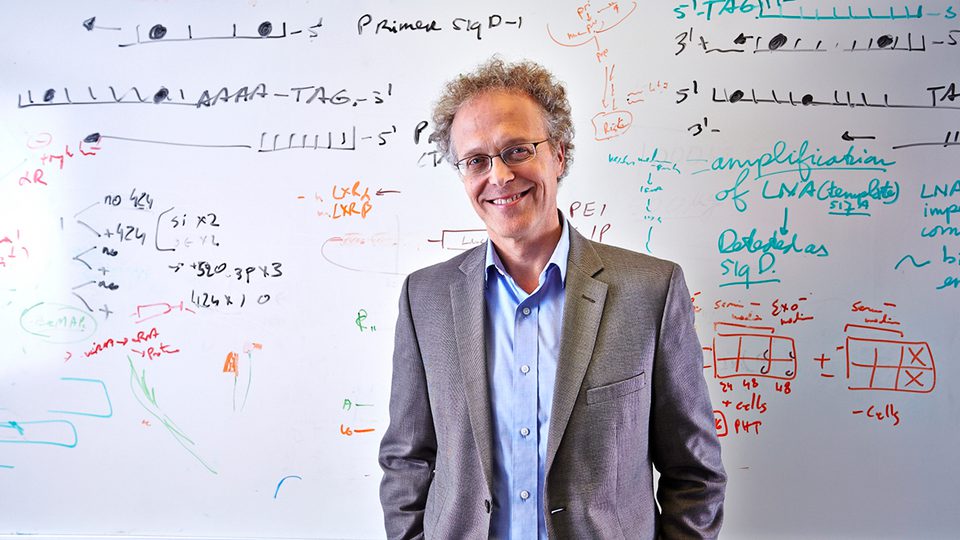Dr. Yoel Sadovsky: Improving our Understanding of Birth Complications

While training in obstetrics and gynecology as a young physician, Dr. Yoel Sadovsky had an epiphany one night that would shape the trajectory of his career. Although he was deeply dedicated to successfully resolving the sometimes life-threatening complications of birth, his passion also lay in harnessing science for better understanding their root causes.
He was on call in the hospital, working in his lab on an experiment on a set of proteins related to placental function when he was interrupted by an emergency call from the nearby labor and delivery suite. The mother’s placenta was separating from the fetus, causing massive bleeding — the same issue that was targeted by the experiment he had been running, now happening in real time.
Sadovsky orchestrated the team that successfully delivered the baby. When they were finished, at 3:30 a.m., he explained what had happened to the patient’s family and reassured them that mother and baby were recovering. He returned to his lab’s experiment and worked the rest of the night seeking answers to the root cause of the mother’s condition. He had found his calling.
“That night captures, for me, this intersection of biology and human tragedy that you convert into happiness. What can be more rewarding than that?” he says.
The task of studying pregnancy as a means of better understanding early development and the lifelong trajectory of wellness — or lack thereof — is Sadovsky’s life’s work.
“It all begins with pregnancy,” he says. “The intersect between the placenta, the fetus, and the mother is the very beginning of inferences that shape human evolution.”
A third-generation OB/GYN, Sadovsky — now the Executive Director of Magee-Womens Research Institute — grew up in Jerusalem in a home where his father’s plans were often interrupted by a woman going into labor. Sadovsky came to the United States in 1986 to further his training, and in caring for his patients, he found questions that could hold major implications for others — such as a fetus that is significantly undergrown compared to its expected growth curve. By studying these situations using genetics and the understanding of molecules, Sadovsky reasoned, he could find answers that would help more than just that patient.
“My interaction with patients also taught me a lot about myself, but also about life,” he says. “When you have a life-and-death situation that involves a mother and a fetus, and you intervene at 3 a.m. with a caesarian section, drug, or other therapies — you save the mother’s life, and the baby’s life. There are very few things that are more rewarding than that.”
In many chronic diseases, doctors’ ability to impact outcomes is minimal, Sadovsky notes. They can try to steer the patients in the right direction, but sometimes the best they can hope to do is reduce impact. But in pregnancy, interventions can have a significant influence on outcomes for both the mother and baby across the rest of their lives. And that’s what he hopes to accomplish — in fact, this scientific inquiry is embedded in his identity.
Be the First to Know
Get the latest research, news, events, and more delivered to your inbox.